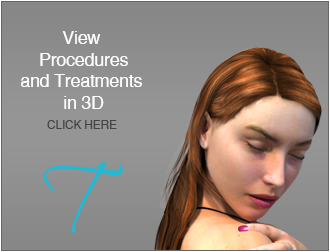
October is Breast Cancer Awareness month. As it comes to an end, I thought it would be an important time to share how important awareness is, and how much just spreading information through education can go.
In a recent JAMA Surgery article from August 2014, the authors discovered that less than half of the women undergoing mastectomy for breast cancer have chosen to undergo breast reconstruction. The factors that were associated with not having breast reconstruction were lower educational level, older age or identifying as black race. Almost 30% of the patients surveyed have a fear of implant based reconstruction, even though silicone breast implants are among the most highly studied group of implantable devices that are used in all of medicine. In fact, 20% of those surveyed expressed a lack of knowledge of their reconstructive options. This has become extremely troubling to me if you juxtapose this apparent lack of information on the treatment of a cancer that affects 1 in 8 women, with the “age of information” that we live in today.
The consumption of information across all of the various forms of media (mobile and stationary) is controlled by the user; much of what we see is directed in front of us. Access to medicine and healthcare is a topic of controversy in today’s current forum, however access to information does not hold much controversy today. So, how can it be that so many women are not informed about their own choices when it comes to breast cancer? I think we, as a society and as medical professionals, have to do a better job keeping the focus of the news and on breakthroughs that make a difference in peoples lives, and not so much focus on who wore their dress best on the red carpet.
When it comes to options for breast reconstruction, there are 2 two basic categories:
1) Implant-based reconstruction: Using a silicone gel or saline implant with or without a tissue expander.
2) Autologous reconstruction: Using your own tissue to create your new breast. This includes pedicled musculocutaneous flaps from your abdomen or back and microvascular free flaps including the DIEP (Deep Inferior Epigastric Flap) flap. Being able to perform Microsurgery allows me to utilize free flaps and perforator flaps as an option when creating the right plan. Perforator flaps, including the DIEP Flap, allow me to move skin and fatty tissue from your abdomen, thigh, buttock or back and leave your healthy muscle and fascia intact.
Breast reconstruction can be performed immediately after mastectomy or in a delayed fashion any time after mastectomy has been performed. After battling breast cancer, reconstruction provides many women a sense of being whole again; restoring hope and fullness to their daily life. Breast reconstruction is right for all breast cancer patients who fit the criteria to have it performed and who are generally healthy enough to undergo a prolonged operation. The details of what option is right for your can be discussed in a consultation.

